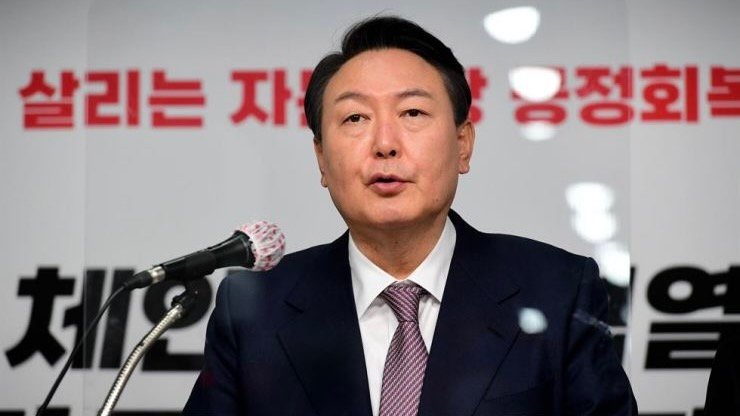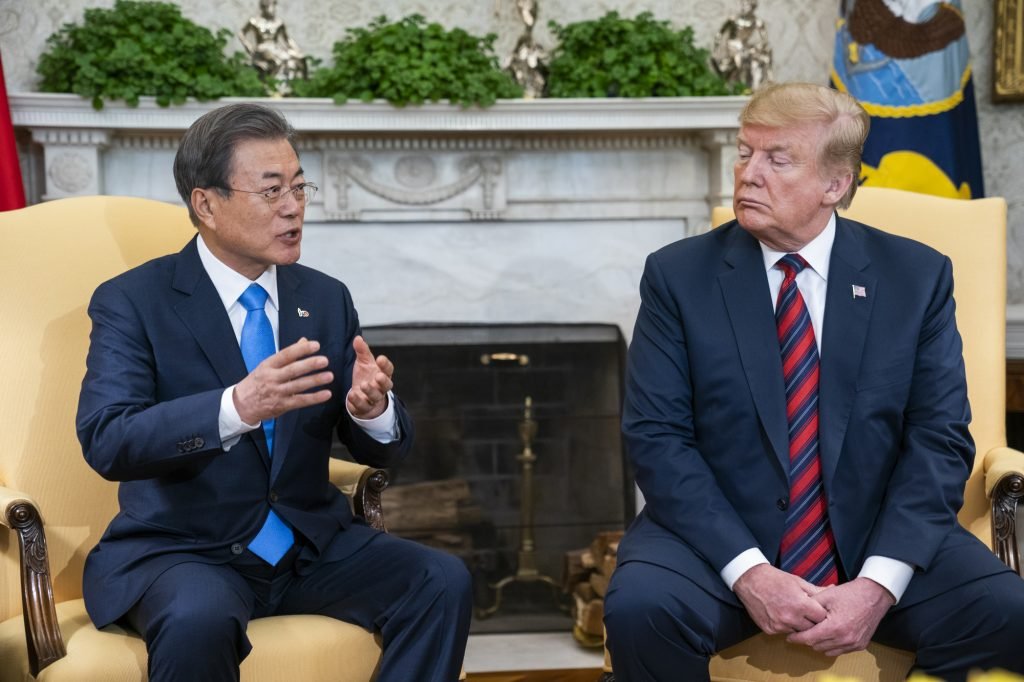The way ahead for South Korea under President Yoon Seok-Yeol

Yoon Seok-Yeol took office as the President of South Korea on May 10. He succeeds Moon Jae-In whose governance and diplomacy have been greatly appreciated in Korea and more widely in the world. His management of the coronavirus crisis and his diplomacy focused on education and the promotion of Korean culture in many countries have clearly contributed to the aura that South Korea currently has. On internal issues, he has suffered from economic mechanisms, notably on the issue of real estate and his management of this real estate crisis has hardly been up to the will of his people.
In the international press, President-elect Yoon is labelled “conservative”. It is not uncommon for candidates that the international press does not find progressive enough to be labelled with words whose meaning is deviated from day to day. But the fact is that after a mandate of a democratic party, the Korean people have chosen a return to traditions and a strong figure. The Korean people, having felt the effects of this mandate, have chosen in their soul and conscience to elect President Yoon.
The pandemic has shown the people that their country is very dependent on exports, but that its service sector (goods and services) is quite fragile and even in danger if a crisis is prolonged. Fortunately, Korea took up exports early in the crisis. But the need for a certain degree of economic autonomy and production was felt.
From the point of view of diplomacy, Koreans have experienced President Trump’s term of office with diplomacy that has led to unprecedented things in inter-Korean politics. The US no longer presented itself as a mediator (third negotiating force), but instead stepped back and acknowledged the mistakes made in North Korea during the Korean War.
This is an important signal sent to the North, the deepest goal of the North is to be able to compete with the USA, to be on an equal footing. Through Trump’s highly critical diplomatic game, Moon’s South Korea has put in place solid agreements and unprecedented summits, President Moon has even been compared to President Kim Dae-Jung.
But the pandemic has brought an entire world to its knees, closed states, democratic states sinking into acute paranoia, and scientific institutions weakened by their membership in the establishment are the ingredients of a cocktail that can be dangerous for the health of a country. As there is a post-pandemic world, there will be a past pandemic in South Korea. Moreover, how to deal with the world’s challenges, and the disruption of the economic and monetary equilibrium caused by the Ukrainian conflict.

Is the end of the American global hegemony desirable for the South, knowing that its military presence has been lowered jointly with the Trump administration? Will Joe Biden, faithful to his ideas, want to be very present in South Korea? These are the negotiations that President Yoon will have to carry out during his term. Basically, the question of this election for the Koreans is the following: in the uncertain future in which we are going to evolve, do we want to lose our sovereignty and our secular traditions, not knowing how to face crises? Or do we want to keep our place in the world while conducting our negotiations with our brothers in the North?
The list of Korean questions would be very long, but if we try to understand the vote for two minutes and change the lens, let’s not see this as a rejection of all of Moon Jae-In’s records. His cultural, educational and diplomatic records are also very interesting, even towards Japan. The Korean people have undergone an almost inane mechanism of the population facing an uncertain future. They voted for righteousness, the embodiment of nationhood, patriotism and above all the heritage of the Kingdom of Korea and the excellent president before. Yoon’s agenda since his election, the meeting with the French ambassador, in particular, is a good example. In the return of traditional governance, not to be confused with traditionalist governance which is too extreme, we are asking for an enormous rigour and uprightness to face the destiny of the next year.
President Yoon will have to work on real estate, inflation and relations with Japan for example. It is not a case of turning in on oneself as the same President Yoon did not invite the BTS group to his inauguration. Korea’s place in the new world dominated by a Sino-Russian bloc will be the same. Will maintaining the Korean identity be a priority? More than ever, the future of Korea (but also of the world by extension) is uncertain.
When Koreans choose “conservatism”, the French re-elect their president, who has no source of legitimacy, and who has benefited from electoral mechanisms. When the international press is interested in the terminology to be used when talking about this tendency to call for right-wing figures inspiring patriotism, love of one’s country and a new chance to solve the country’s important problems, it is not interested in the downgrading of France in many points such as the university, education and above all the decrepitude of its democracy, today jeopardised by interests outside France.



















